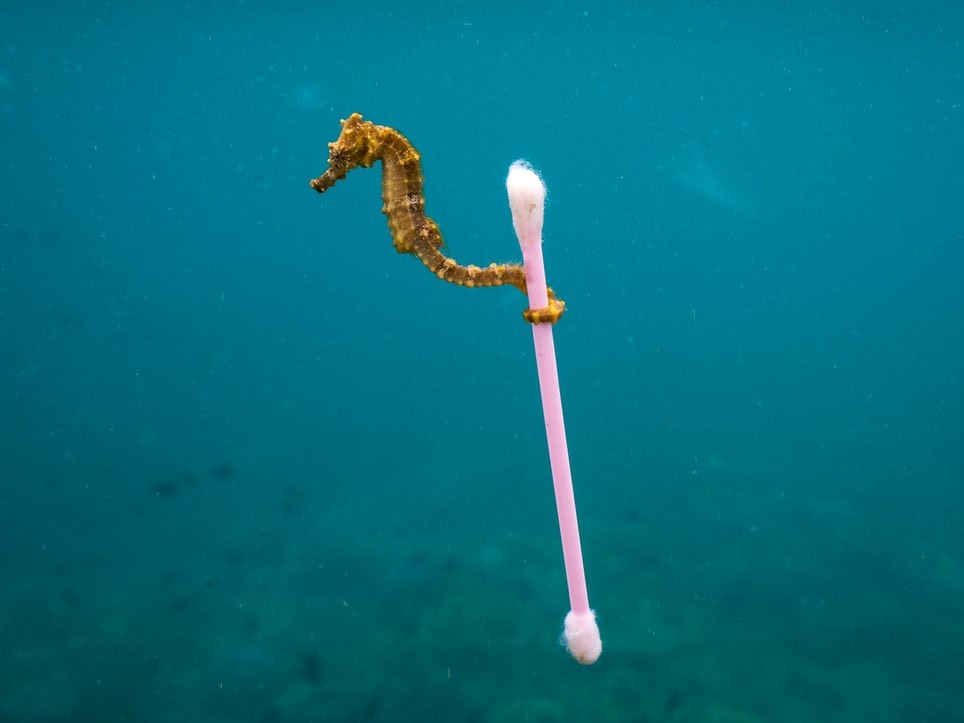Oceans: they pollute, they pay
Plastic pollution from single use items such as straws, cutlery and cotton bud sticks are a serious issue facing oceans and marine life. Often these items are not disposed of properly and because they do not degrade end up in the oceans. Here they adsorb and concentrate toxins and are eaten by wildlife causing physical harm, starvation and death. In response to this issue, initiatives like The Cotton Bud Project in the UK, a collaboration of conservation societies, NGOs and governments, aim to better consumer understanding of the problem and change habits, such as flushing cotton buds and other sanitary waste down toilets. However, The Cotton Bud Project and others readily admit that awareness campaigns have a limited success rate and more needs to be done in order to curb the problem entirely, including the use of alternatives and strict legislation on single use plastics. The Council of the EU adopted measures which include an EU wide ban on plastic cotton bud sticks, cutlery, plates, straws, stirrers, sticks for balloons, all products made of oxo-plastic, cups as well as food and beverage containers made of expanded polystyrene. It also lays out new rules for labelling products containing plastics, the percentage of recycled material new products must contain, providing alternatives to single use items at point of sale and ensuring that they are not provided free of charge. Along with these market restrictions the legislation includes extended producers responsibilities (EPRs). These EPRs are based on the polluter pays principle, which simply means that manufacturers of these products are responsible to help with clean-up and recycling. Producers of the following products will need to help cover the costs of waste-management and clean-up, as well as data-gathering and awareness raising measures: food and beverage containers, bottles, cups, packets and wrappers, light weight carrier bags and tobacco products with filters. Within these EPRs are also specific targets for the separate collection of single-use plastic beverage bottles of which 77% to be achieved by 2025, followed by increases to 90% by 2029. For Georg Mehlhart, senior researcher at the Öko-Institut (Institute for Applied Ecology), Germany, these EPRs are, “a much more important signal to the world and Europe than the ban of the ten single use products.” Mehlhart believes that with the advances in recycling technology and new restrictions on the export of waste the time is right for a change: “I cannot understand why corporations are allowed to place these products in the market with no collection scheme in place,” he says, “and this is a good example of governance saying that if producers place single use plastic in the world they are responsible and the state is responsible to put in place the producer responsibility to schemes.” According to Ioana Popescu of the Rethink Plastic, an alliance of European NGOs, another important aspect of these new rules is that the scope of the directive doesn’t differentiate between plastic products. For example, biodegradable and bio-based plastics will be governed by the new rules as well. Read the full article here http://www.allthings.bio/oceans-they-pollute-they-pay/(opens in new window)



